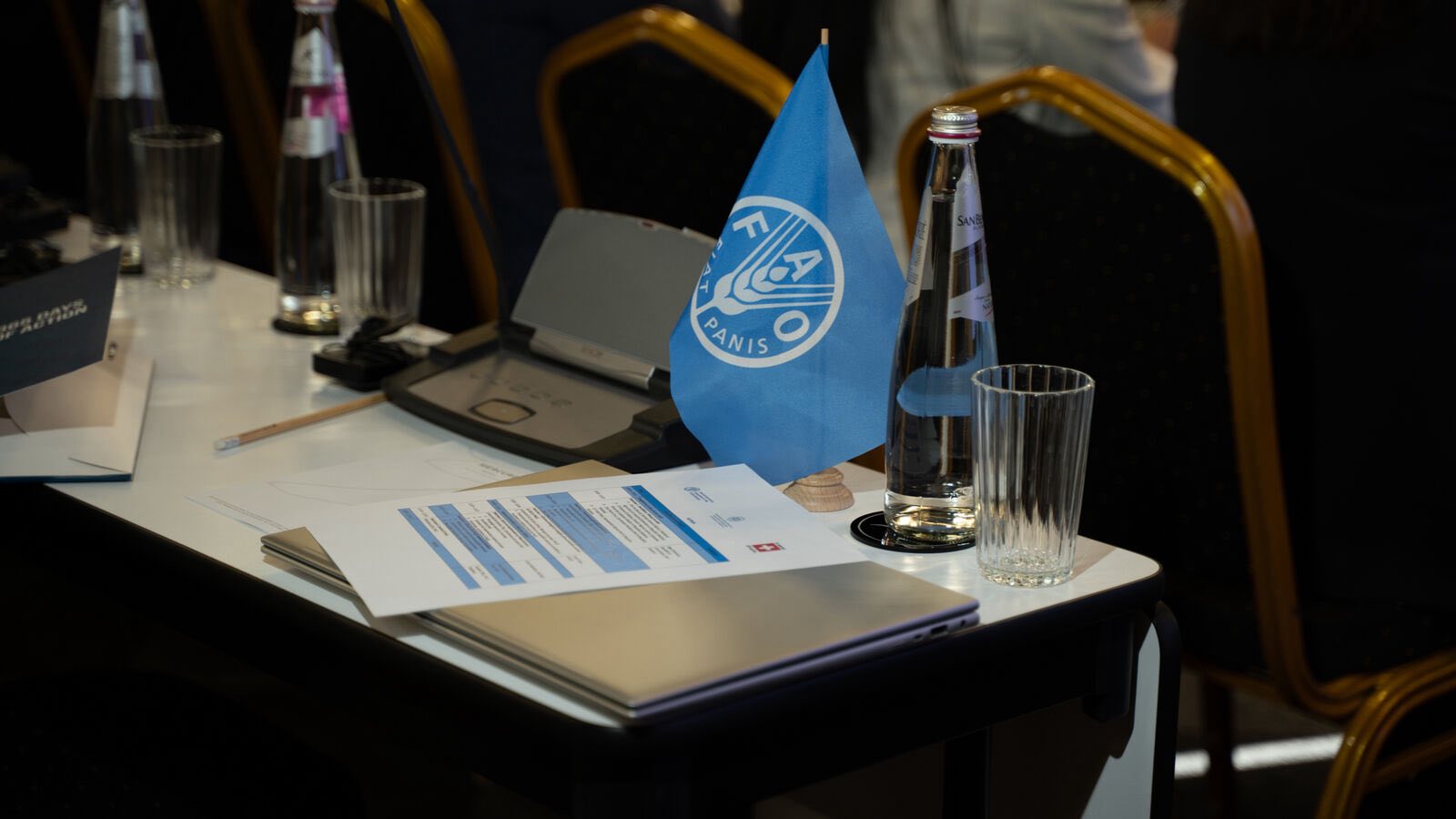
New project to enhance competitiveness and climate resilience of small farmers in Moldova launched by FAO
The United Nations Food and Agriculture Organization (FAO) has launched a new project aimed at strengthening the competitiveness and adaptability to climate change among small farmers in Moldova. The initiative represents the second phase of the Resilient and Inclusive Markets Program, implemented in partnership with the United Nations Development Program (UNDP) and financially supported by the Government of Switzerland.
The project was officially presented during a workshop held on November 13, 2025, in Chisinau, with the participation of national institutions, development partners, and farmer organizations. The event aimed to establish a coordinated approach to ensure effective implementation tailored to the needs of the agricultural sector.
"The new phase of the program builds on the results of the first stage, during which approximately 17,000 small farmers benefited from technical assistance, training, market access support, and climate risk management tools. The expansion of the project will support over 25,000 farmers and agricultural households, both directly and indirectly," explains the Ministry of Agriculture and Food Industry.
Through this initiative, FAO and UNDP aim to contribute to the modernization of Moldovan agriculture, increasing rural incomes, and strengthening the resilience of agricultural communities to climate change.
FAO is a long-standing partner of Moldova, engaging in strategic projects for sustainable agricultural development. The organization provides technical assistance and training for farmers through Farmer Field Schools, facilitating the adoption of sustainable and climate-adapted agricultural practices.
In the climate change adaptation, FAO supports authorities in developing local adaptation plans and promotes "climate-smart" agriculture. In emergencies, FAO offers support to vulnerable farmers by distributing animal feed, seeds, and other agricultural inputs. In the table grape production sector, FAO supports the value chain through its analysis, establishment of farmer schools, and the creation of a "Knowledge Hub."
FAO collaborates with the Ministry of Agriculture to strengthen agricultural consulting and extension services, supporting local agricultural associations. The organization helps farmers increase resilience to drought and other challenging climatic conditions by distributing seeds and adapted technologies. In collaboration with international partners, FAO supports agricultural modernization and energy efficiency, including through eco-friendly technologies in rural households.
Moldovan energy minister to parliament; MPs to examine simple motion on state energy policy
Entrepreneurs of Moldova can access funding to strengthen energy efficiency; Switzerland provides 1.85 million euros
VIDEO // Moldovan National Roads Administration's update: winter driving conditions on national roads; restrictions for heavy transport on more routes
Goods exports increased by 6.4 percent in 2025
Public Property Agency says procedures of expropriation for land of future U.S. Embassy in Moldova almost completed
VIDEO // Chișinău International Airport: snowfall and blizzards disrupt flights as snow removal equipment operates continuously
Naval maneuvers in Giurgiulesti Port of Moldova temporarily suspended over adverse weather conditions
Energy Minister: No significant adjustment to electricity tariff
Railway of Moldova enterprise enters reorganization: assets to be evaluated before company is split into two entities
UPDATE 10:50 // Traffic of heavy vehicles temporarily suspended on Căușeni – Anenii Noi route
Direct flights from Chișinău to Korea
Facilities for Moldovans returning to live at home: Government-approved decision
Moldelectrica enterprise to be reorganized
Moldova and Korea strengthen bilateral economic cooperation: agreement signed in Chișinău
VIDEO // Dragobete feast brings weddings across Moldova: 14 couples say “YES” on February 24
Ministry of Culture requests authorities be informed before inviting foreign artists
Government Secretary General rejects mayor’s statements on local public administration reform
Historic cobblestone on 31 August street of Chisinau to be rehabilitated in 2026
Three PhD students of USMF "Nicolae Testemițanu" to receive Government Excellence Scholarship
DOC // President signed decree on conscription of young people into military service in National Army
President: Ukraine deserves just peace, and Moldova to continue to support
“Porcelain War” screened in Chișinău
Moldovan MPs attend events marking four years since start of war in Ukraine
Four years since start of Russian invasion of Ukraine: Ambassador Paun Rohovei: Ukrainian people have shown extraordinary unity and resilience
BTA: Southern Ukraine Celebrates Linguistic Diversity at Third Mother Tongue Festival in Odesa
PHOTO // Moldovan parliament's building illuminated in colors of Ukrainian flag
Call to the parliament of Romania: two academicians call for adoption of law on branch of Romanian of Academy in Chisinau
Moldovan president has meeting with delegation of Denmark's parliament
Moldovan deputy PM for reintegration has meeting with special envoy of Ukraine's Foreign Affairs Ministry
PHOTO // Support worth 20 million euros on behalf of Denmark; Moldova to strengthen defense sector, mechanisms to counter disinformation

